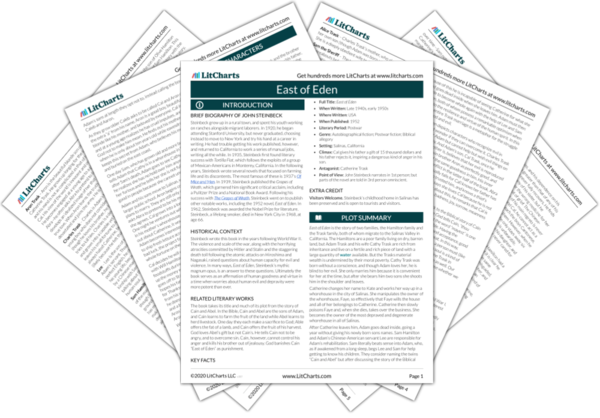LitCharts assigns a color and icon to each theme in East of Eden, which you can use to track the themes throughout the work.
Good, Evil, and the Human Soul
Family, Love, and Loneliness
Religion, Myth, and the Power of Stories
Money, Wealth, and the Value of Work
